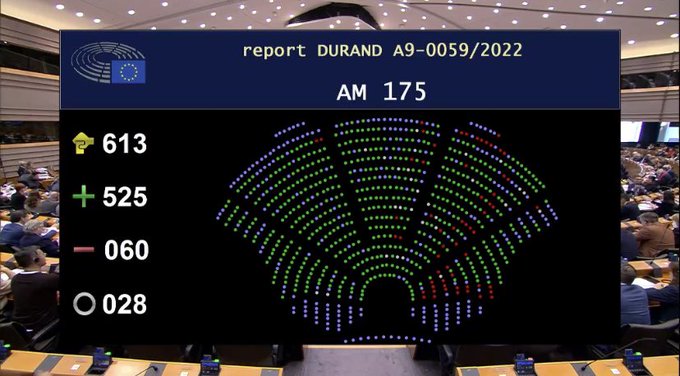WEMEAN's partners answer Décideurs' questions. Read the full interview.

Décideurs. You launched your consulting firm in 2018. What is its vocation?
WEMEAN. The creation of WEMEAN is the concrete expression of the convictions we have forged by advising senior executives for over 15 years. Today, the realization that the world has changed logically leads us to think differently about the role and place of the company in society. Business is no longer exclusively an economic and social player, but in the face of one crisis after another, it must play its part in inventing new solutions to meet the major challenges facing our societies. This is our founding conviction. From this stems a number of structuring issues for the company.
It needs to meet the expectations of the new generations, who are and will be increasingly militant workers and consumers. It must also change the way it looks at itself: the company is a community living in an ecosystem that it has every interest in developing and consolidating. This calls for new priorities in terms ofemployee advocacy, internal communication and leadership, and shared commitment. Managers need to govern differently to ensure their companies win. WEMEAN's vocation is to respond to these new challenges alongside C-levels.
D. Your raison d'être: to create meaning and give impact to the actions of managers and companies in society. What does this mean in concrete terms?
W. We are convinced that managers have a responsibility to move our world forward by taking a stand and making a commitment, not only in and for their company, but also in and for society. Meaning can't come from a marketing approach, an advertising campaign or a communications operation. It comes from the company's raison d'être and the leadership of its managers.
A company's raison d'être must enable it to rally support for its strategy, attract and retain talent, and convince consumers and stakeholders. In this way, they are the ones who talk about you and value who you are, even when your company is changing. The raison d'être is a lever of trust.
D. In your opinion, are French managers sufficiently involved in society? Compared with other countries?
W. Today, Anglo-Saxon countries have a head start in this field, as shown by the conversion of American leaders to social activists .
In the name of their company, they no longer hesitate to defend a cause in society. The same movement is at work in French society: we can see it, for example, in the dynamic commitment of the "Manifesto for an Ecological Awakening", or in the rise of Tech for Good start-ups. French companies have clearly understood that it is in their economic, political and societal interest to get involved.
D. How do you support them?
W. We are advisors: our first duty is to listen to managers to understand their needs and challenges. Then we design and implement strategic and operational action programs to meet them.
We rely on tried-and-tested methods, while providing tailor-made advice. Our core value is to work alongside our customers to help them win. Today, you can't win in a losing world. That's why our programs are designed not only to help companies succeed, but also to help them contribute to the progress of society as a whole.
D. What are your areas of expertise?
W. Our first expertise is to understand our customers' environment in order to enhance their position and give meaning to their actions in society. This means helping them to position themselves, make the right decisions and act in line with what they want to embody in this new world.
This means working on the company's raison d'être, building employee advocacy internally among its talents, handling its relations with the media and public authorities, intervening to manage its crises and complex cases, knowing how to organize a debate on a particular issue or society, or developing its digital communications, etc. More than ever, the subjects are targeted and require expertise, which is why we believe that the profile of the teams is key. More than ever, subjects are targeted and require expertise, which is why we believe that team profile is key.
D. What is the profile of your consultants?
W. Above all, we're looking for personalities who are in tune with the challenges facing managers and the agility of the corporate world, as well as with the new realities of an open, international world. We believe that mastery of the written word and the ability to convince are the best guarantees of these requirements, as they are the basis for getting an idea across.
Above all, we're looking for curious minds who are interested in the major issues facing society, be they political or economic. In fact, we've forged a partnership with the ENS Ulm student forum to defend this vision of current affairs debate.
D. In the age of fake news and the imperative need (now obligation) for transparency in corporate public affairs, what is the role of the executive? (What posture)?
W. The executive must accept the role of leader. Today, he or she can no longer simply be the author and orchestrator of the company's strategy. He must be the guarantor and ambassador of his company's raison d'être. The CEO has become the "chief meaning officer", as Jack Welch puts it.
Being a leader today not only means having the power to make decisions and lead an organization, it also means assuming responsibility for listening to and dialoguing with managers, teams and society as a whole. This is a decisive criterion for the mandate of today's leader. The time has come for leaders to commit themselves and defend their positions using the methods and tools of our time!
D. You've said that " companies must become the allies of politicians, making the most of their expertise and their ability to listen to local needs". How can this be achieved in concrete terms?
W. Who better than companies to understand and analyze the local environment? If the company is to play a role in society, it can't do so solely in Paris, where national decision-making centers are located. It has to create a relationship of proximity and trust with local elected representatives and their constituents.
This means working in new ways with local players, and therefore supporting managers in the field in their leadership, communication and relations with their ecosystems. Today, it is essential to know how to engage organizations and their management at a territorial level, to make them responsible players in the company's strategy and leadership.
Read the full article on the Décideurs website: https: //www.magazine-decideurs.com/news/le-dirigeant-doit-accepter-d-etre-un-leader


